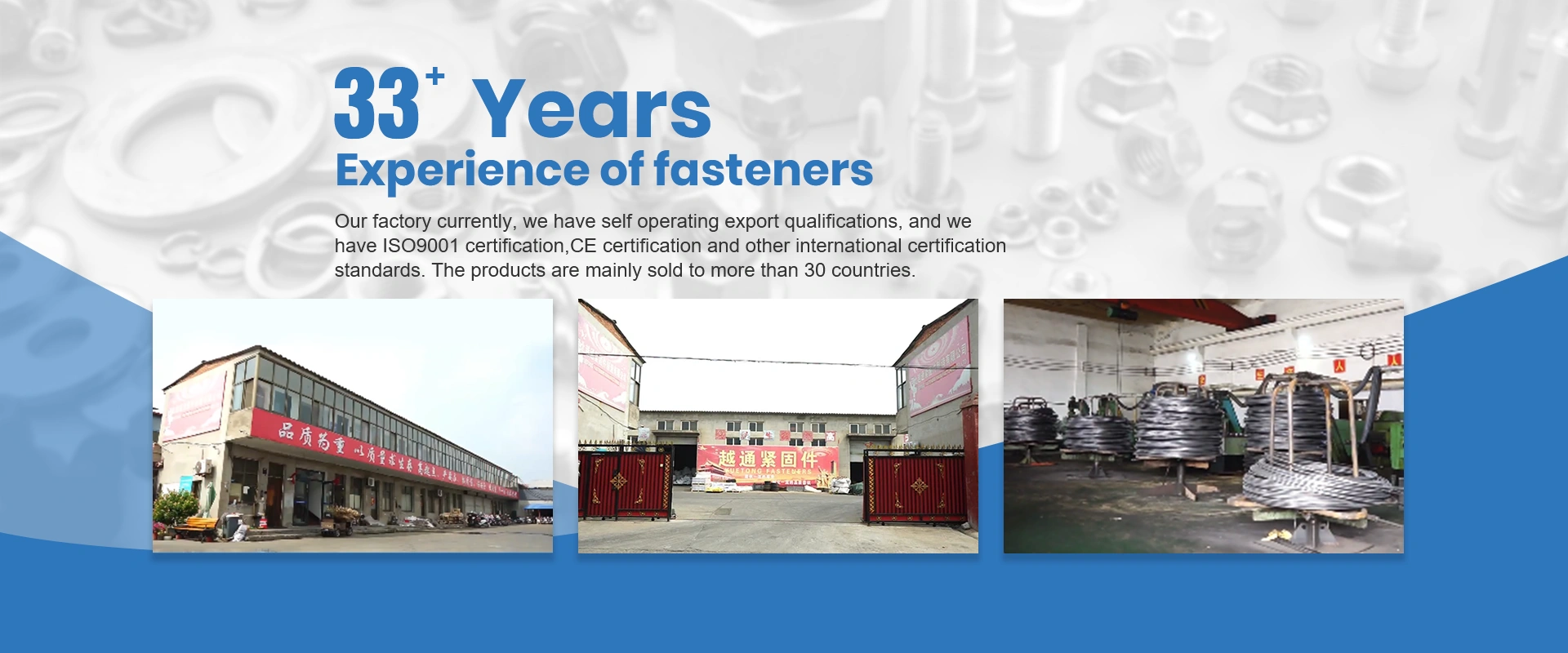des. . 30, 2024 06:45 Back to list
ground fixing bolts
Understanding Ground Fixing Bolts Importance and Applications
Ground fixing bolts, often referred to as anchors or foundation bolts, are essential components in the construction and engineering sectors. These bolts serve as a means of securing structures to the ground, providing stability and safety in various applications. In this article, we will explore the importance of ground fixing bolts, their various types, applications, and installation considerations.
Importance of Ground Fixing Bolts
Ground fixing bolts are crucial for the integrity of structures, especially those subject to dynamic loads such as wind, seismic activity, or heavy machinery. They are designed to provide anchorage and support, preventing shifting or overturning in adverse conditions. The correct use of ground fixing bolts enhances the safety and longevity of constructions, making them a vital aspect of engineering design.
Types of Ground Fixing Bolts
There are several types of ground fixing bolts, each designed for specific applications and soil conditions. The most common types include
1. Expansion Bolts These are widely used in concrete and masonry applications. They expand upon installation, creating a tight grip within the material. Their ability to resist tension makes them ideal for securing structures such as fences, frames, and machinery.
2. Concrete Screws These specialized screws are designed for direct insertion into concrete without the need for anchors. They offer a stronghold by cutting threads into the concrete as they are driven in and are commonly used in lighter applications.
3. Helical Anchors Also known as screw anchors, these are twisted into the ground, creating stability through friction and skin resistance. They are particularly effective in soft soils and are widely used in foundations, retaining walls, and telecommunication towers.
4. Rock Bolts Utilized primarily in the mining and tunneling industries, these bolts are designed to stabilize rock formations. They can be installed as passive support systems or actively tensioned to manage ground movement.
5. Tie-down Bolts These are particularly useful in securing structures against uplift or lateral loads. Common in areas prone to hurricanes or tornadoes, they are essential for ensuring the safety of residential and commercial buildings.
Applications of Ground Fixing Bolts
Ground fixing bolts have a wide range of applications across various industries, including
ground fixing bolts

- Construction They are fundamental in the foundation and framing of buildings, bridges, and other infrastructure. Their ability to anchor heavy structures ensures overall stability.
- Telecommunications Ground fixing bolts are essential in securing communication towers, satellite dishes, and other equipment that needs to withstand environmental forces.
- Industrial Machinery Heavy machinery requires secure anchoring to prevent displacement during operation. Ground fixing bolts help maintain equipment stability in factories and construction sites.
- Solar and Wind Energy With the rise of renewable energy, ground fixing bolts are critical in securing solar panels and wind turbines to withstand high winds and varying weather conditions.
Installation Considerations
Proper installation of ground fixing bolts is paramount for achieving the desired performance and safety. Key considerations include
- Soil Type Understanding the soil conditions where the bolts will be installed is essential. Different soil types require different bolt types and installation methods.
- Load Requirements Evaluating the loads—both static and dynamic—that the anchors will need to support is crucial for selecting the appropriate bolt type and size.
- Environmental Factors Corrosion resistance is an important consideration, especially in marine or chemically aggressive environments. Selecting bolts made from the right materials can prevent premature failure.
- Installation Techniques Ensure proper tools and techniques are used during installation. Misalignment or inadequate depth can compromise the effectiveness of the anchors.
Conclusion
Ground fixing bolts are fundamental components in many construction and engineering projects, ensuring the stability and safety of structures. Understanding their types, applications, and proper installation methods is crucial for professionals in the field. As technology and materials continue to advance, the efficiency and effectiveness of ground fixing bolts will only improve, contributing to safer and more resilient structures worldwide.


